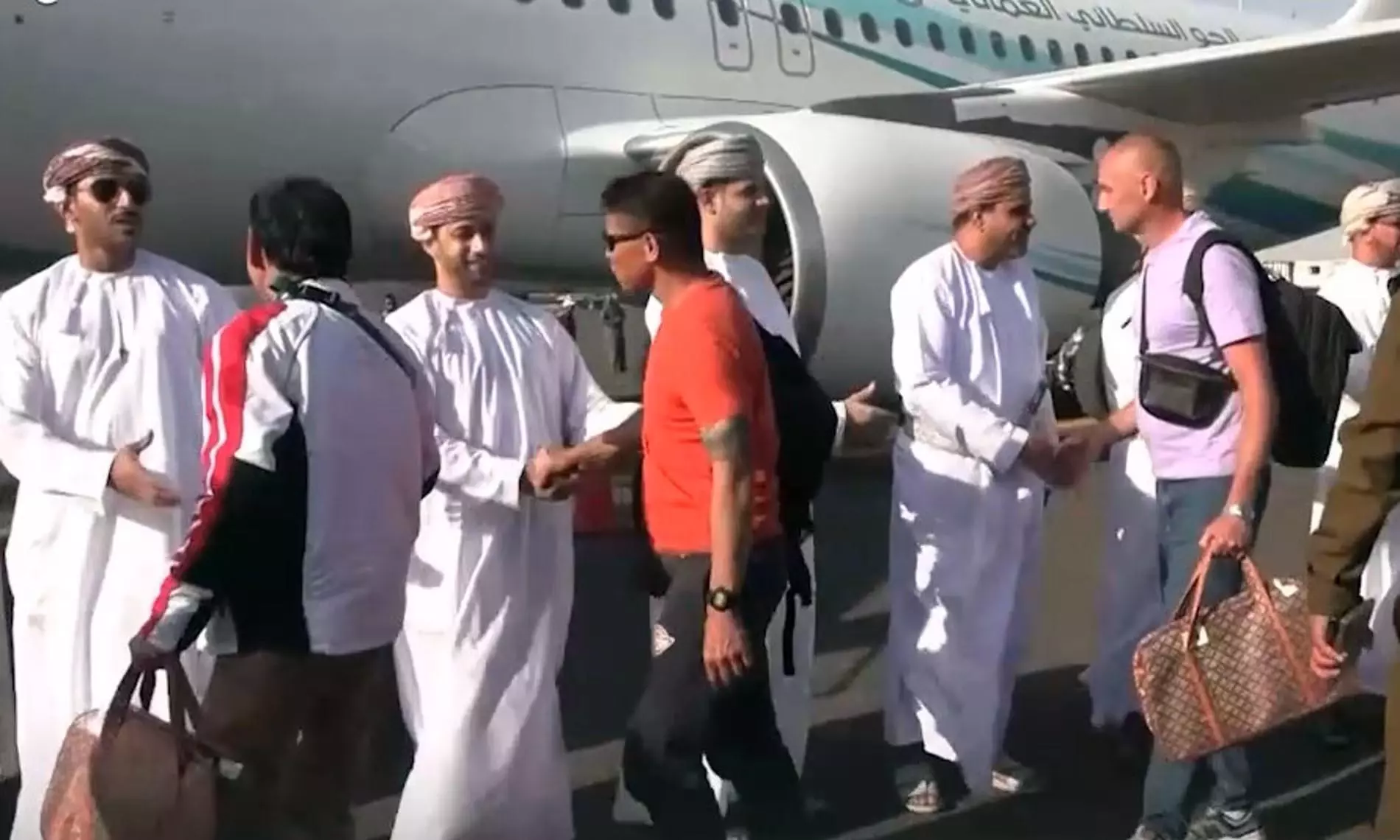
Houthis release seized vessel crew after more than a year amid Gaza ceasefire
text_fieldsYemen’s Iran-aligned Houthi group has released the crew of the Galaxy Leader, a Bahamas-flagged vessel seized off the Yemeni Red Sea coast in November 2023, ending more than a year of detention.
The crew, consisting of 25 nationals from Bulgaria, Ukraine, the Philippines, Mexico, and Romania, was handed over to Oman as part of efforts linked to a recent ceasefire in the Gaza conflict.
The vessel, owned by Galaxy Maritime and chartered by Japan’s Nippon Yusen, was captured by Houthi forces shortly after the outbreak of war in Gaza. Its release has been described as a gesture of solidarity with Gaza, aligning with the group’s broader political stance during the conflict.
Houthi leader Abdul Malik al-Houthi recently expressed readiness to act against Israel if the Gaza ceasefire is violated, underscoring the group’s involvement in regional tensions.
The release has drawn international attention, with the United Nations welcoming the move as a positive development. The detention had separated the crew from their families for over a year, highlighting the human cost of maritime disruptions caused by the conflict.
The International Maritime Organization and the International Chamber of Shipping have called for measures to prevent such incidents, stressing the need for the protection of seafarers amidst geopolitical tensions.
The Houthis have intensified their attacks on shipping in the Red Sea and Gulf of Aden since the outbreak of the Gaza conflict in October 2023, disrupting global shipping routes and targeting vessels linked to U.S. and British interests.
These actions, including the sinking of two vessels and the seizure of another, have prompted the Biden administration to reinstate their designation as a “specially designated global terrorist” group, a step aimed at balancing counterterrorism measures with the need to ensure humanitarian aid access in Yemen.
The conflict has forced shipping firms to reroute through longer and costlier paths around southern Africa, illustrating the wider economic impact of the group’s actions.























